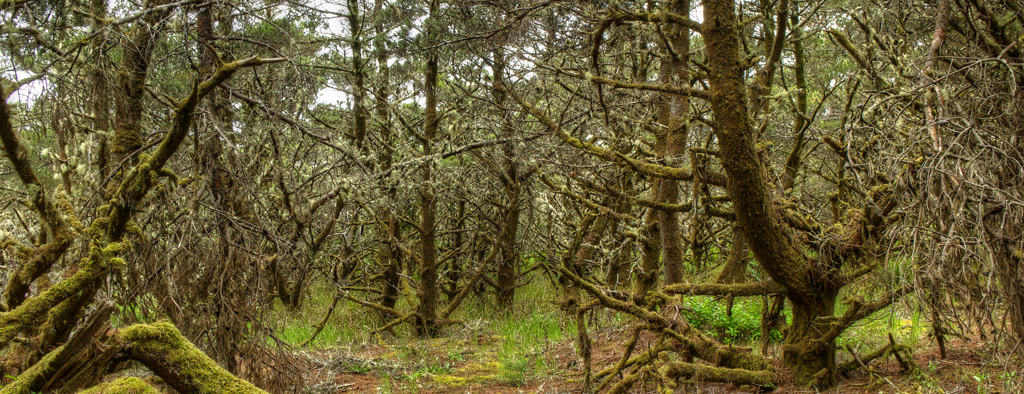
Carbon Credits: Astoria Sees Forest Through Trees
Astoria stands to receive new revenue, help combat climate change, through carbon credit project.
In an innovative trade-off, Astoria has agreed not to aggressively harvest timber in the Bear Creek watershed over the next decade in return for carbon credits that could help industrial polluters offset carbon-dioxide emissions that contribute to climate change.
The city is partnering with The Climate Trust, a Portland nonprofit that would purchase the carbon credits. Utilities with fossil-fuel driven power plants pay the trust to find projects that offset pollution and meet the requirements of Oregon’s landmark emission standards law.
By committing to a less aggressive timber harvest at Bear Creek, Astoria could receive about $358,750 in carbon credits after expenses this year and about $130,000 annually for the next nine years. The first year has the most significant potential value because it is based on the city’s existing inventory of timber, while the value for the following years is tied to growth.
“We commit to harvest less than what we could and we then can monetize that,” said Michael Barnes, the city’s consulting forester.
Carbon-dioxide emissions are the most prevalent greenhouse gas from human activity and are tied to global warming. The ocean, soil, atmosphere and forests act as carbon “sinks” that absorb more carbon than is released, so preserving forests can help store carbon and reduce the amount of carbon dioxide released into the atmosphere.
The Climate Trust was created to help achieve Oregon’s landmark 1997 law that set standards for carbon-dioxide emissions at power plants. The trust’s projects have led to an estimated 2 million tons of emission reductions, the equivalent of the annual greenhouse gas emissions from 421,000 passenger vehicles.
“One of the things that’s appealing about this project is it’s providing a financial incentive to decrease the harvest in an area that’s really providing clean drinking water to the city of Astoria,” said Mik McKee, The Climate Trust’s senior project analyst for forestry.
McKee said there would be “greater attention paid toward conservation, and clean water, and forest health. And that’s a really appealing thing on a local scale, because that’s going to translate for the citizens of Astoria and the people in the community.
“On a larger scale, this is a harder concept to explain … but trees sequester carbon. So these trees that aren’t being cut are going to pull carbon dioxide out of the atmosphere that, theoretically — at the most simple level — (is) being emitted by the Oregon utilities that are essentially paying through The Climate Trust to have these carbon offsets retired.”
The Astoria City Council approved the project with The Climate Trust in December.
The city already harvests less timber than it could from the 3,700-acre Bear Creek watershed to help protect the drinking water supply.
Based on a 3 percent annual growth rate, Barnes said the city could harvest about 3 million board feet a year and not deplete an inventory of about 100 million board feet of standing mature timber.
But the city harvests about 750,000 board feet of timber a year. Last year, the harvest was larger — just under 850,000 board feet — and the city netted about $350,000 for the capital improvement fund.
Revenue from the carbon credits would also go into the capital improvement fund.